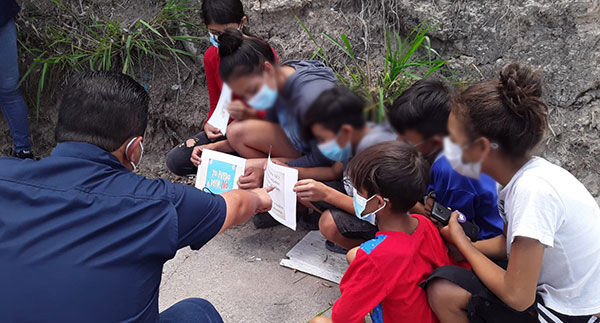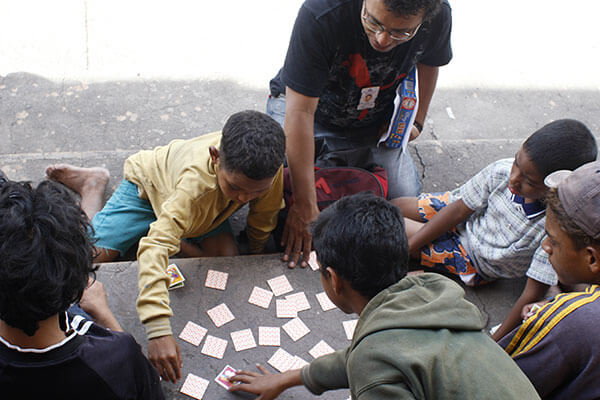Our community outreach staff engage with young people and their families with the very same unconditional love and absolute respect that we show our residents. They identify needs, work with families to better support their children, and build networks of community support to both respond in times of crisis and aid in the prevention of homelessness and abuse.
Our teams work with families, neighborhood committees, and other nongovernmental organizations to build awareness around children’s rights, ensure a safe and loving home environment, and identify serious problems such as abuse, exploitation, and neglect. We help families deal with basic needs for adequate and nutritious food, stability, safety, and parenting skills that foster understanding, love, and unity. And we help parents develop skills to secure employment or their entrepreneurship to increase economic stability for the whole family.

In San Pedro Sula, Honduras, and Coatepeque, Guatemala, busy border towns, our outreach teams seek to prevent and respond to many of the complex situations that youth and young families encounter on the migrant trail and in the communities that straddle it. In San Pedro Sula, we also support young people who have been returned from Mexico or the U.S., helping them rejoin their families and communities.
At some of our Covenant House sites in Latin America, our street outreach teams may be the first point of contact for a child or adolescent who is experiencing homelessness, neglect, or exploitation. (Some of our youth come to us directly through the court system.)
Wherever children and adolescents may find refuge — on streets, under bridges, in garbage dumps, and parks — we treat that space and the people in it with respect.

We visit in pairs and assess the conditions the children and adolescents there are living in. Are they in need of food, clothing, or medical care? Are there any adults around? Are the children sniffing glue or other easy-to-obtain solvents to prevent hunger pangs as part of their survival strategy? Are they in immediate danger?
Using games and sports instead of judgment, we win their trust. This is how we learn the details of their situation and begin to make a plan. Can we respond to them and their parents where they are? Would the child or adolescent be safer at our residence?
Once that engagement has begun, it is relentless, with the goal to ensure each child or youth’s safety and that their rights are respected.